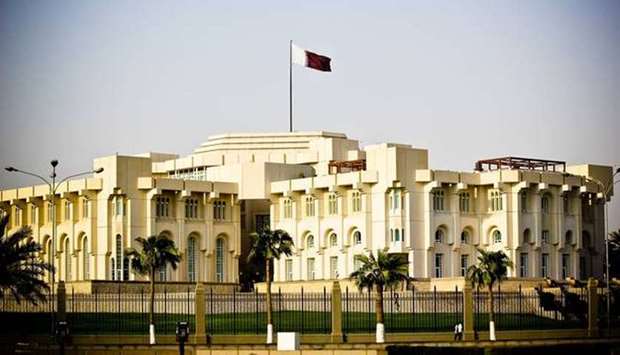The Cabinet yesterday approved a ministerial decision by the Ministry of Administrative Development, Labour and Social Affairs (MADLSA) to extend the ban on working in open workplaces by two hours for three and a half months during summer.
Earlier, during June 15-August 31, work under the sun or in open workplaces, was prohibited from 11.30am-3pm.
HE the Prime Minister and Minister of Interior Sheikh Khalid bin Khalifa bin Abdulaziz al-Thani chaired the Cabinet’s regular meeting at its seat at the Amiri Diwan.
Following the meeting, HE the Minister of Justice and Acting Minister of State for Cabinet Affairs Dr Issa Saad al-Jafali al-Nuaimi said in a statement that the Cabinet approved a ministerial decision prepared by MADLSA to replace Resolution No 16 of 2007 of the Minister of Civil Service Affairs and Housing, regarding limiting the working hours in open workplaces during summer.
Ministerial decision No (16) of 2007, stipulated that from June 15 to August 31, the work done under the sun or in open workplaces must not be more than five hours in the morning and must stop between 11.30am and 3pm.
The amendment to the above decision was made with the aim of securing the health and safety of workers in open spaces that are exposed to high temperatures that can cause heat and health stress.
The project included a number of provisions, including limiting working hours for jobs performed under the sun or in open workplaces during the period from June 1 to September 15 annually, and prohibiting work from 10am-3.30pm.
The Cabinet also approved a draft law on judicial implementation.
“The preparation of the draft law comes for the purpose of reorganising, re-arranging and updating the implementation procedures stipulated in the Code of Civil and Commercial Procedure by Law No 13 of 1990, in line with the development that the country is witnessing in various fields, as well as benefiting from modern technological means to speed up judicial implementation procedures,” QNA, quoting the statement, said.
The project is expected to contribute to creating an environment attractive for investment through the speedy implementation of judicial rulings, in addition to contributing to securing the rapid and continuous payment of family expenses, and addressing the phenomenon of issuing cheques without balance, given that the cheque is a direct executive document under which the implementation is carried out without the need to file lawsuits.
Among the provisions included in the draft law are provisions related to the establishment of an independent court where implementation shall take place, as well as the availability of multiple options for conservative and executive measures, the facilitation of procedures, the provision of adequate safeguards for or against the executer and others, and the establishment of a fund for court trusts, the statement said.

